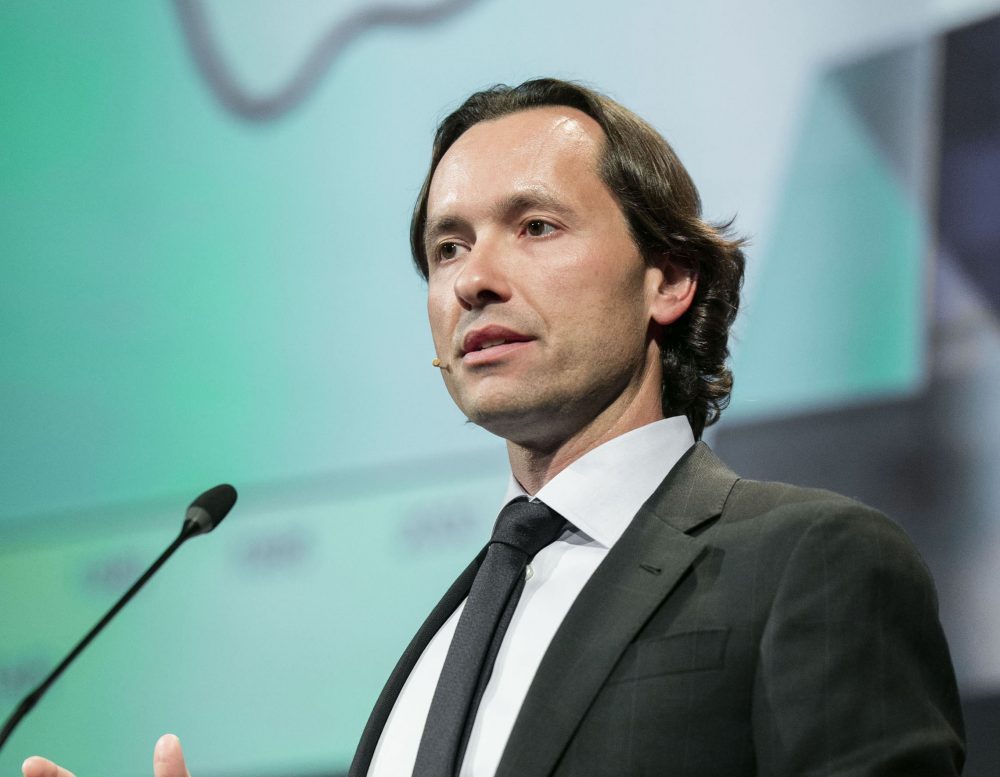
Writer: Aidan Morgan Chan | Editor: Shashi Balasubramanian
An Underdeveloped, High-Income Country
Home to some of the world’s most influential tech giants such as Samsung and SK Hynix, South Korea has solidified itself as an industrial powerhouse. However, despite being one of the world’s top economic performers, economists are still classifying the country as an emerging market–and Chaebols, South Korea’s elite, may have something to do with this.
Since 1988, South Korea has exhibited on average an impressive 4.9% Real GDP growth–a testament to their remarkable, transformational journey across cultural, social, and economic spheres throughout the last century. Fast forward to 2024, South Korea has become a high-income country boasting a GDP per capita of about $32,422–surpassing the $25,000 threshold economists commonly use to classify an economy as being developed. However, despite South Korea’s stellar economic performance, they’re still not recognized by the world as a fully realized country.
The International Monetary Fund (IMF) outlines three conditions for this evaluation: systematic presence or market share, market accessibility, and income level. Assessing a country’s relevance in international trade hinges on these three pivotal conditions gauging relevance in global markets. While South Korea has met one of these conditions (income level), deficiencies have been observed in the other two. Global index provider MSCI Inc. concluded in their 2023 Market Classification Review that South Korea falls short of being fully developed primarily due to the lack of market accessibility, preventing international investors from holding stakes in Korean companies. Because of this, South Korea’s economy has been classified as an emerging market, indicating that while they may partake in foreign trade, they’ve yet to achieve international recognition from institutional investors worldwide.
Traditionally, barriers to trade and market access have been exhibited by countries such as China which enforce stringent controls on foreign investment. Their policies prevented foreign investors from directly accessing Chinese stocks (A-Shares) listed on the mainland, requiring approval through their Qualified Foreign Institutional Investor program. However, unlike these countries that enforce the regulation of capital markets, South Korean policymakers have always adopted a more lenient approach. In September 2023, President Yoon Suk Yeol approved the decision to allow offshore companies to apply for the rights to trade in Korea’s local currency market–indicating that the government is proactively trying to campaign for greater incentives to invest in and raise capital domestically.
Nonetheless, these efforts have not translated into a desired level of market integration. Despite the country’s vibrant industry and supportive policies towards foreign parties, its market performance doesn’t reflect the caliber of its economic potential. It’s remained stagnant throughout the past few decades as investors continue to pull away from the Korean index–and this might just have something to do with “Chaebols,” South Korea’s elite conglomerates.
A Conglomeration of Wealth and Power
At the end of the Korean War, designated families were given government support to rebuild South Korea’s infrastructure. While they were successful, as indicated by their GDP figures, the concentration of powers developed an oligopolistic regime within most sectors of Korean industry. The delegation of power manifested through the means of inheritance and this factionist style of the industry caused corruption to burgeon, ultimately fostering an imbalance of power deposits throughout South Korea’s political economy.
As of 2024, the top ten conglomerates alone comprise nearly 60% of South Korea’s entire GDP. Their immense contributions to Korean society have allowed Chaebols to become important socio-political figureheads and as such, they’re able to influence each aspect of the country’s development. On multiple occasions, Chaebols have even been spotted accompanying President Yoon Suk Yeol at international political conferences. This is not commonly observed in other nations that distinguish the worlds of politics and business. Korean authority delineates a rather convoluted relationship in their society and often implores many to wonder: Do Chaebols exist above the law–and if so what issues have they empirically manifested for the country at large?
Unethical Sharing
Chaebols are known to engage in a complex network of cross-shareholding. This means that the majority of publicly traded shares are held by other publicly traded companies, thus giving them nearly full autonomy over South Korea’s economic activity by limiting stakeholders to other Chaebols. This leads to infrastructural issues such as the erosion of corporate governance and financially, cross-shareholding causes the equity value to be accounted for twice. Due to the nature of South Korea’s instance, this leads to an influx of incorrect share-pricing valuations, ultimately establishing a fickle market that renders it conceptually inaccessible to foreign investors due to heightened risk aversion. In conjunction, this gives the Chaebols, as a collective, an undisputed agency in dictating the country’s economic trajectory by implicitly stringing together this exclusive web of mutual ownerships, which compromises the rights of the minority investor.
The issue is further amplified by the fact that South Korea has one of the highest inheritance taxes in the world hovering at about 50%. Furthermore, the government simultaneously imposes an extra tax upon a company’s largest shareholder. This then increases the maximum tax rate to 60% which is almost more than double the average for OECD countries. Because of this, Chaebols are incentivized to keep their share prices artificially low–much lower than book value–to avoid high payouts, a practice dubbed the “Korean Discount.”
From an economics perspective, this follows the theory of the Laffer Curve which models tax revenue on the y-axis and tax rates on the x-axis. Though tax revenue can be disregarded in the case of the Korean Discount, the philosophy nonetheless holds: When taxes are too high, consumers, in this case, the conglomerates, are incentivized to “spend less” or depreciate the value of their shares. Due to this unstable trend of discounting and valuation in pricing, investors have no incentive to engage in either short-term or long-term holdings since there is no policy protecting the minority outside the loop. As such, market inaccessibility is much less an issue of legal permissibility–meaning there are very few explicit barriers to trade. Rather, the issue derives from the psyche of investors not wanting to gamble in Korean stocks due to the Chaebols’ unorthodox market tampering.
In light of this, President Yoon’s administration has imposed a blanket ban on the short selling of stocks. This will make it more difficult for Chaebols to abuse market tactics, however, this is not enough to calm the minds of investors at large.
Antitrust or the Lack of Trust?
Nearing the end of 2023, the Korea Fair Trade Commission (KFTC) alongside President Yoon proposed an antitrust policy to undermine the sheer dominion of internet conglomerates in South Korea. This became known as the amendment of the Monopoly Regulation and Fair Trade Act (MRFTA), acting as an analog to the European Union’s Digital Markets Act (DMA)–ensuring that companies don’t impose barriers to entry or hinder the development of others in cyberspace. However, President Yoon faced much backlash from Korean citizens, conglomerates, and even the U.S. Chamber of Commerce. The Chamber of Commerce stated this legislation would further allow the Korean government to intervene and violate trade agreements by unfairly targeting international corporations–reiterating the notoriety of the Korean industry’s reputation of prioritizing their economic players rather than maintaining fair systems for all.
Ending the Discount
From here, the solution seems pretty straightforward. The key to unlocking South Korea’s untapped market potential lies in the hands of the Chaebols themselves. If they could simply offer investors more stability in the market by holding valuations at orthodox levels, it would allow the country to raise more capital at home. However, they’ve expressed that they do not plan to adopt standard practices until the government eases taxes–forcing policymakers to play into their conditions of an eventual stalemate.
Despite South Korean Financial Services Commission Vice Chairman Kim Soyoung stating that many conglomerates are supporting the initiative to end the Korean Discount, it would seem as if they are merely trying to satisfy their proclivity for profit maximization. If they truly wanted to end the discount, they would, but instead their request for tax alleviation illustrates where their priorities lie. The utilitarian business philosophy offers a clear trajectory, however it seems that the Chaebols are reluctant to take the first step.
Appreciate the Tax Cuts
The Chaebols have voiced their concerns, and the government has since piloted the Corporate Value-Up Program to increase shareholder value and attract foreign capital. President Yoon’s administration acknowledges that the Korean Discount is primarily due to issues with corporate governance and the government’s dismissiveness of company concerns, dating back to 1995 when the most “recent” tax cut was implemented.
President Yoon and his administration have now made their intentions clear, expressing that they’d like to reduce South Korea’s inheritance tax from 50% to 40% while also nullifying the 10% levy upon the highest shareholder. The Corporate Value-Up Program also stated that companies that offer shareholder returns will further reap the benefit of new tax breaks. Hence, the goal of President Yoon is to pivot closer to the static balance point for optimal taxation. By implementing these changes, it is hoped that the Chaebols will allow capital markets to grow organically, as they have implicitly assured.
Although the country still has a long way to go before these changes manifest in the market, 2024 has been a highly experimental yet promising year that has pioneered the end of the Korean Discount. All that’s left is to dissolve the overbearing conglomeration of wealth and power–only then can Korea finally pursue its full economic potential.
Featured image by Getty Images



